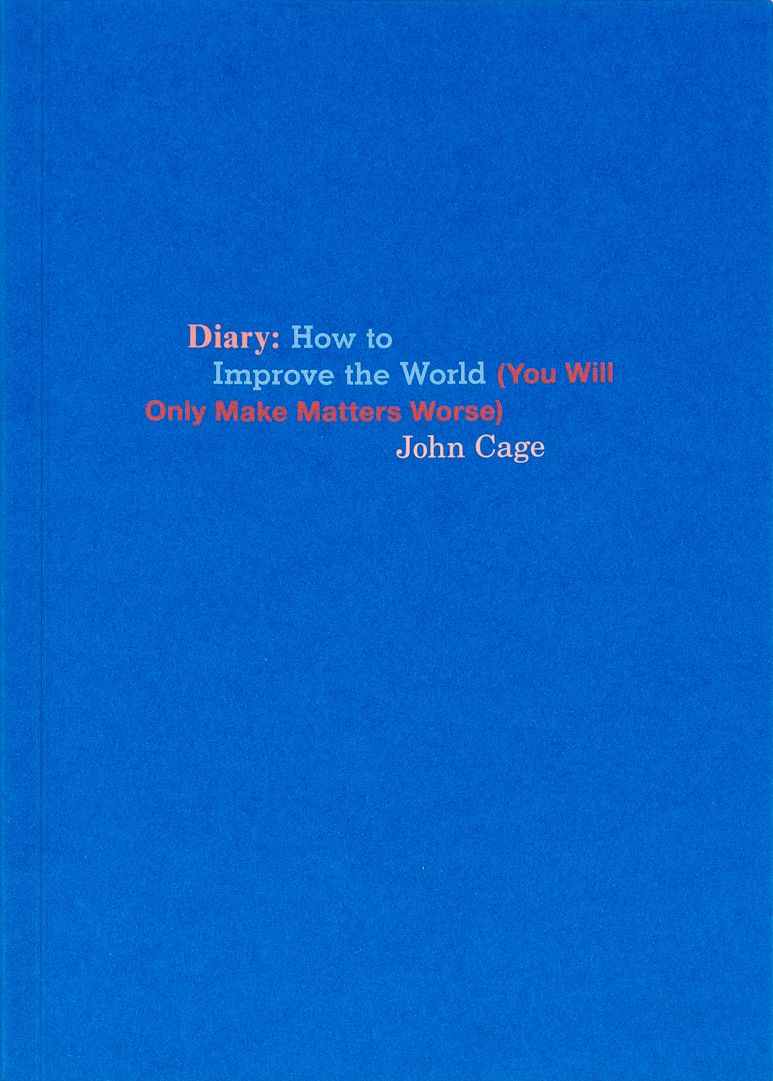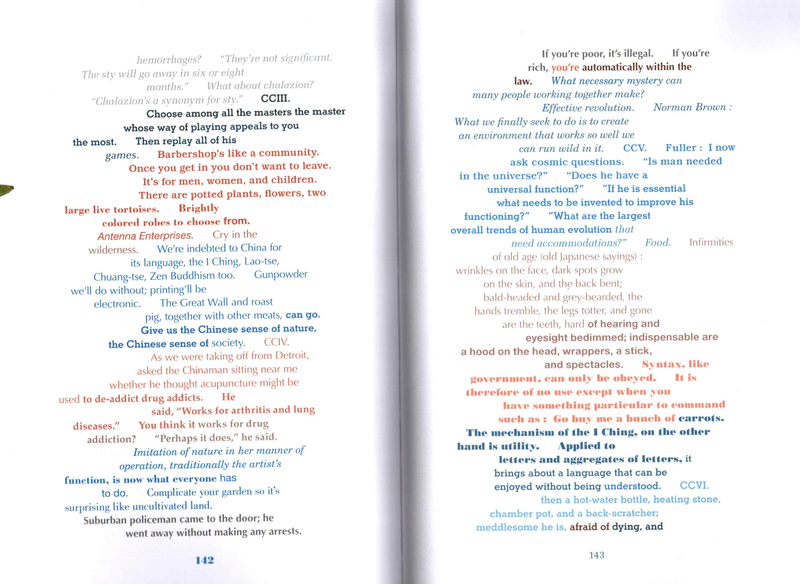You will only make matters worse
John Cage and the prerogatives of syntax

I've been reading artists and poets who experiment with computers in their work, and recently that's meant John Cage. I've been opening his delightfully inventive Diary: How to Improve the World (You Will Only Make Matters Worse) at random lately. It's a fun book; the composition, color, and even the font of each "diary" entry are based on aleatory operations. I picked up a mint used copy at the delightful Topos books last year, but only just got around to reading it.

I opened to this page after watching the cruelty that unfolded in the White House yesterday, during which our adolescent leaders berated and bullied the leader of Ukraine , a vulnerable country under attack by a rapacious larger power. So much imperative in the belligerent demands for resources, so much obedience and deference demanded without offering so much as a word of respect in return.
If you're poor, it's illegal. If you're
rich, you're automatically within the law
And, later
Syntax, like
government, can only be obeyed. It is
therefore of no use except when you
have something particular to command
such as: Go buy me a bunch of carrots.

Diary: How to Improve the World (You Will Only Make Matters Worse) – siglio
Siglio publishes uncommon books that live in the rich and varied space between art and literature. Driven by its feminist ethos, siglio champions uncategorizable, unwieldy, and expansive works by artists and writers who invite readers to see the world anew by reading word, image, and page in unfamiliar ways. Founded by Lisa Pearson in 2008 in Los Angeles and now located in a barn in the Hudson River Valley, Siglio has published more than forty critically acclaimed books by artist-writers including Joe Brainard, John Cage, Sophie Calle, Felix Gonzalez-Torres, Madeline Gins, Karen Green, Dick Higgins, Dorothy Iannone, Ray Johnson, Jess, Bernadette Mayer, Adam Pendleton, Nancy Spero, and Cecilia Vicuña. In addition to critical accolades, Siglio books have earned design and translation awards, as well as a devoted readership.